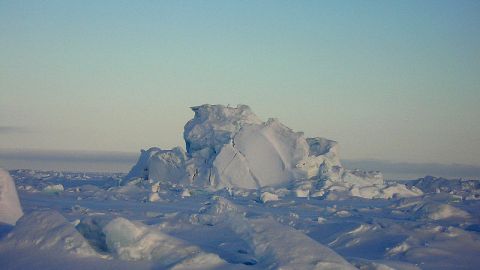How Soon Before an Ice-Free Arctic Summer?

What’s the Latest Development?
The latest data on the Arctic region from the Intergovernmental Panel on Climate Change (I.P.C.C.) “fails to capture trends in Arctic sea-ice thinning and drift, and in some cases substantially underestimates these trends,” says a group of M.I.T. scientists. While the I.P.C.C.’s report says that an ice-free Arctic summer could by a reality by 2100, M.I.T.’s Pierre Rampal says it could happen much earlier. According to Rampal’s team: “Arctic sea ice is thinning, on average, four times faster than the [I.P.C.C.] models say, and it’s drifting twice as quickly.”
What’s the Big Idea?
When we imagine the Arctic, we imagine sprawling sheets of ice that stretch toward the horizon. But this image is one that could change within our lifetime, say M.I.T. scientists critical of the I.P.C.C.’s report on Arctic ice. The report focuses on temperature at the expense of mechanical elements like wind and sea currents. Intervention to prevent Arctic sea-ice melts should begin now, says scientists, because of the nature of feedback loops which increase the severity of environmental change as ecosystems interact with one another.





